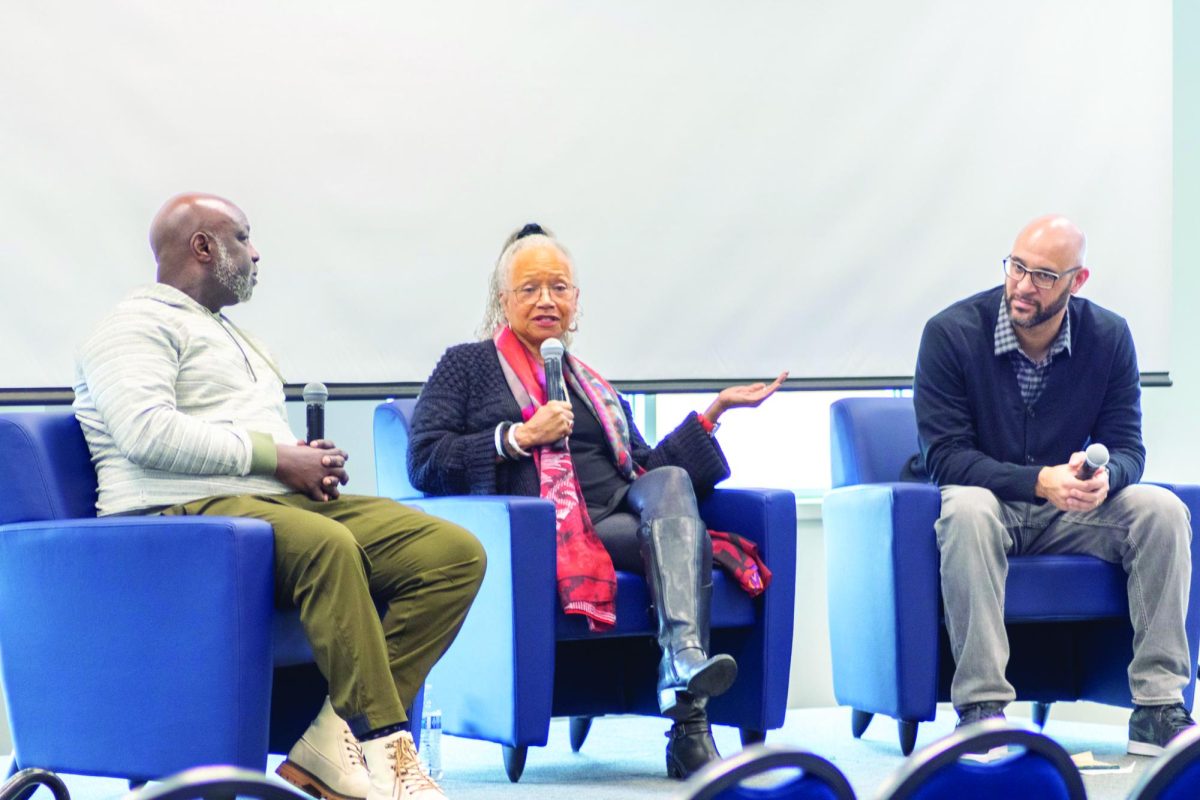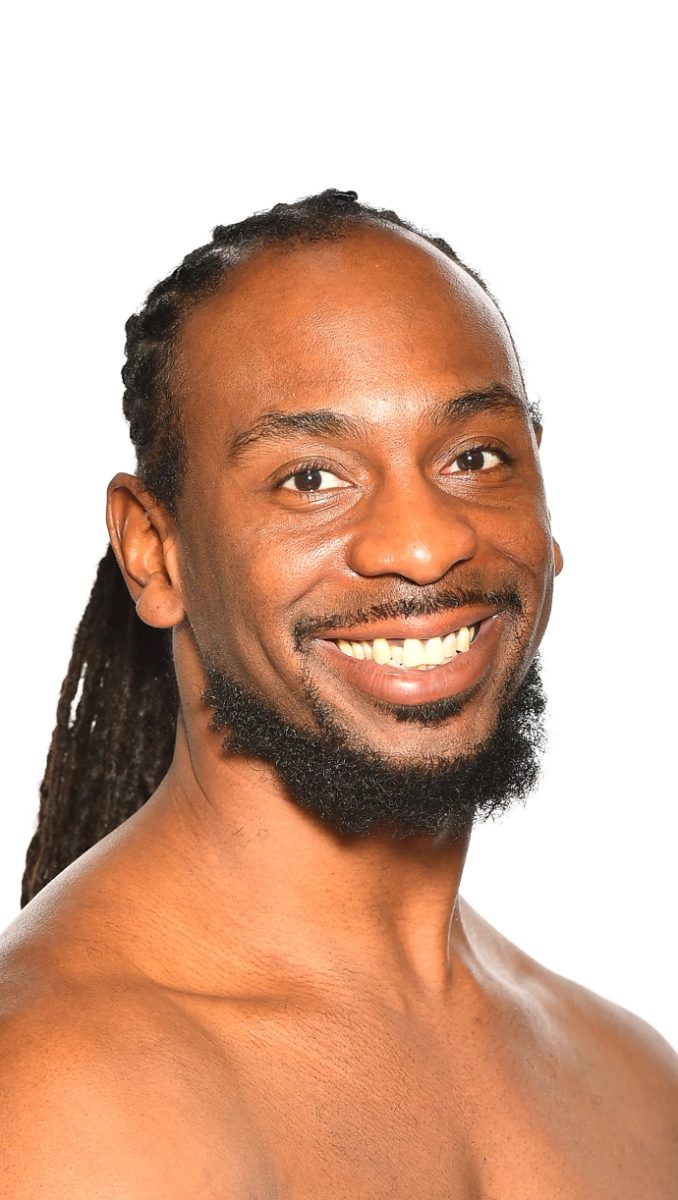As part of Reverend Dr. Martin Luther King Jr. Commemoration Week, Grand Valley State University hosted two screenings on Jan. 18 of “Team Dream,” a short documentary film written and directed by Luchina Fisher. The film follows Madeline Murphy Rabb and Ann Smith, two elderly African-American women who made it their mission to swim in the National Senior Games.
The first screening of the film was shown in Kirkhof Center’s Pere Marquette Room and was accompanied by a brief panel discussion with the cast, giving the audience a chance to learn more about the film and its story from those involved. The second screening was shown in the Charles W. Loosemore Auditorium at GVSU’s Pew Campus and was followed by a question and answer session with Smith.
Louis Moore, Ph.D., co-chair of the commemoration week executive planning committee and GVSU history professor, helped organize events for MLK week, including the film screenings. Moore said he was excited to bring “Dream Team” to GVSU because of its themes that coincide with Dr. King’s legacy.
“It’s a beautiful film just to sit with and to watch these women train, but also at the same time understand this history,” Moore said. “It’s (the film screening) going to be a powerful moment for a lot of people.”
In addition to footage of Rabb and Smith training and interviews with their coaches, scenes depicted the reality that many African Americans faced during the days of Jim Crow and the Civil Rights Movement. The “separate but equal” doctrine that came from the racist Supreme Court ruling Plessy v. Ferguson defined this era, resulting in a lack of access to swimming pools for many African Americans, which played an important role in Smith’s upbringing.
“For most people who look like them (Smith and Rabb), those opportunities didn’t come, and if they did, the city would drain the swimming pool,” Moore said. “Literally, if a Black person touched the water, the next day the swimming pool would be drained and they’d have to fill it up again for the white kids to swim.”
Smith discussed her experience with these struggles as she recounted her father working to bring pool access to his community.
“My father, and some of the men in the community, realized there was no swimming pool in the Black community,” Smith said. “All of the pools in the city were in the white communities. My father, and some of the other parents, petitioned the city to build a swimming pool (in) our community.”
In addition to the discussing the film itself and racial inequities during the Jim Crow era, Smith and the other panelists highlighted the topic of health and well-being. For Smith, the subject is of particular importance because she has a mission to reach her 100th birthday, something Smith said her great-grandfather expected from of his 18 children.
“What was my passion going to be?” Smith said. “My passion was going to be taking care of this instrument so that I could live a long life and enjoy it.”

























